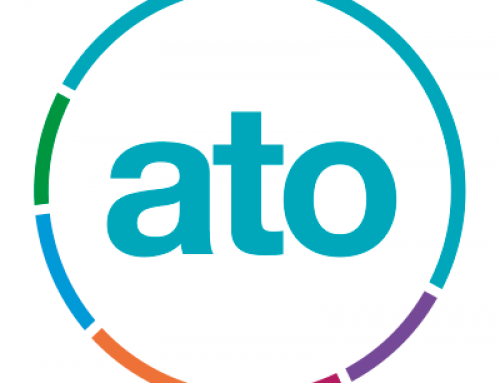Last night, the Treasurer Josh Frydenberg handed down the 2019-20 Federal Budget.
Here are some of the key Budget Measures announced.
Economic Update
- Estimated Budget Positions
- 2018-19 -$4.2 billion deficit
- 2019-20 $7.1 billion surplus
- 2020-21 $11.0 billion surplus
- GDP
- 2018-19 2.25%
- 2019-20 2.75%
- 2020-21 2.75%
- Unemployment Rate
- 2018-19 5.00%
- 2019-20 5.00%
- 2020-21 5.00%
- CPI (Inflation)
- 2018-19 1.50%
- 2019-20 2.25%
- 2020-21 2.50%
ATO-specific Budget Measures
- The Government will provide $42.1 million over four years to the ATO to increase activities to recover unpaid tax and superannuation liabilities. These activities will focus on larger businesses and high wealth individuals to ensure on-time payment of their tax and superannuation liabilities.
Individual Income Tax Rate Changes
- The Government will provide a further reduction in tax provided through the non-refundable low and middle income tax offset (LMITO). Under the changes, the reduction in tax provided by LMITO will increase from a maximum amount of $530 to $1,080 per annum and the base amount will increase from $200 to $255 per annum for the 2018-19, 2019-20, 2020-21 and 2021-22 income years. The LMITO will be received on assessment after individuals lodge their tax returns for the 2018-19, 2019-20, 2020-21 and 2021-22 income years.
- From 1 July 2022, the Government will increase the top threshold of the 19 per cent personal income tax bracket from $41,000, as legislated under the plan, to $45,000.
- From 1 July 2022, the Government will increase the low income tax offset (LITO) from $645, as legislated under the plan, to $700.
- From 1 July 2024-25, the Government will reduce the 32.5 per cent marginal tax rate to 30 per cent.
Small Business Budget Measures
- From 7:30 PM (AEDT) on 2 April 2019 (Budget night), the Government is increasing and expanding access to the instant asset write-off. The Government is increasing the instant asset write-off threshold from $25,000 to $30,000. The threshold applies on a per asset basis, so eligible businesses can instantly write off multiple assets. The increased and expanded instant asset write-off will apply from Budget night until 30 June 2020.
- The Government will provide $57.5 million over five years from 2018-19 to the Department of Jobs and Small Business, the Administrative Appeals Tribunal (AAT) and the Australian Taxation Office (ATO) to provide access to a fast, low cost, independent review mechanism for small businesses in dispute with the ATO.
Superannuation Budget Measures
- The Government agreed to amendments to the Protecting Your Super Package announced in the 2018-19 Budget to:
- extend to 16 months the period after which an account that has not received any contribution is considered inactive;
- expand the definition of when an account is considered active for the ATO-led consolidation regime; and
- require the ATO to consolidate to an active account, where possible, within 28 days of receipt.
- The Government will delay the start date for ensuring insurance within superannuation is only offered on an opt-in basis for accounts with balances of less than $6,000 and new accounts belonging to members under the age of 25 years to 1 October 2019.
- The Government will allow voluntary superannuation contributions (both concessional and non-concessional) to be made by those aged 65 and 66 without meeting the work test from 1 July 2020.
- People aged 65 and 66 will also be able to make up to three years of non-concessional contributions under the bring-forward rule.
- Those up to and including age 74 will be able to receive spouse contributions, with those 65 and 66 no longer needing to meet a work test.
- The Government will reduce costs and simplify reporting for superannuation funds by streamlining some administrative requirements for the calculation of exempt current pension income (ECPI).
- The Government will provide $19.3 million over three years from 2020-21 to the ATO to send electronic requests to superannuation funds for the release of money required under a number of superannuation arrangements.
Other Taxation Measures
- The Government will strengthen the Australian Business Number (ABN) system to disrupt black economy behaviour by requiring ABN holders:
- from 1 July 2021, with an income tax return obligation, to lodge their income tax return; and
- from 1 July 2022, to confirm the accuracy of their details on the Australian Business Register annually.
- The Government will provide further relief to farmers and tourism operators by amending the luxury car tax refund arrangements. For vehicles acquired on or after 1 July 2019, eligible primary producers and tourism operators will be able to apply for a refund of any luxury car tax paid, up to a maximum of $10,000.
Single Touch Payroll Measures
- The Government will savings of $2.1 billion over five years from 2018-19 by simplifying and automating the reporting of employment income for social security purposes through Single Touch Payroll (STP). From 1 July 2020, income support recipients who are employed will report income that is received during the fortnight, rather than calculating and reporting their earnings. Each fortnight, income data received through an expansion of STP data-sharing arrangements will also be shared with the Department of Human Services, for recipients with employers utilising STP.
- The Government will provide $82.4 million over four years from 2019-20 to the Australian Taxation Office (ATO) and the Department of Veterans’ Affairs to support the expansion of the data collected through Single Touch Payroll (STP) by the ATO and
the use of this data by Commonwealth agencies.
Other Budget Measures
- The Government will increase the Medicare levy low-income thresholds for singles, families, and seniors and pensioners from the 2018-19 income year. The threshold for singles will be increased from $21,980 to $22,398. The family threshold will be increased from $37,089 to $37,794. For single seniors and pensioners, the threshold will be increased from $34,758 to $35,418. The family threshold for seniors and pensioners will be increased from $48,385 to $49,304. For each dependent child or student, the family income thresholds increase by a further $3,471, instead of the previous amount of $3,406.
For more information about Budget 2019-20, or how the proposed measures impact on you and your business, contact the Cooper & Associates team.






Leave A Comment
You must be logged in to post a comment.